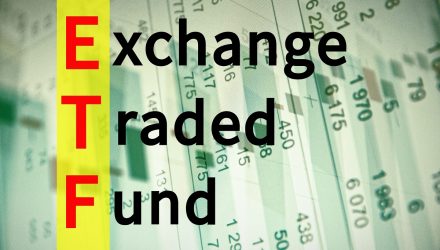The Securities and Exchange Commission announced late last month that it is has decided to approve a new rule and form amendments that are created to modernize the regulation of exchange-traded funds (ETFs), by generating a transparent and consistent framework for most of the ETFs operating today.
According to the SEC, “The adoption will facilitate greater competition and innovation in the ETF marketplace, leading to more choice for investors. It also will allow ETFs to come to market more quickly without the time or expense of applying for individual exemptive relief. In addition, the Commission voted to issue an exemptive order that further harmonizes related relief for broker-dealers.”
“Since ETFs were first developed over 27 years ago, they have provided investors with a number of benefits, including access to a wide array of investment strategies, in many cases at a low cost,” said SEC Chairman Jay Clayton. “As the ETF industry continues to grow in size and importance, particularly to Main Street investors, it is important to have a consistent, transparent, and efficient regulatory framework that eliminates regulatory hurdles while maintaining appropriate investor protections.”
In light of the news from the SEC, many investors are curious as to how this will affect them, and what if any changes will happen with regard to ETFs.
“So first of all I think it’s a win for the industry and for ETF investors. Probably the major thing that comes out of this is what’s called a harmonization of the exemptive relief rules, and this is where an asset manager had to go to the SEC and get an exemption from the ’40 Act’ to allow them to list their shares on the stock exchange,” exclaimed Will Rhind, founder and CEO of GraniteShares,
on CNBC.One consequence of this rule was that the whole process became much slower, as different firms got different exemptions depending on when they began processing their applications, explained Rhind.
This is likely to change, according to Rhind.
“The upshot is that the SEC has harmonize this so that now everybody, well, the exemptions have gone away,” said Rhind.
Essentially what the new SEC rules do is to characterize different ETFs, which facilitates competition and innovation, offers more choice for investors, and allows ETFs to come to the market more expeditiously than previously.
Another question from investors is how this will affect ETFs going forward.
“I think we could see more products from more issuers. It lowers the bar for new issuers to come into the space and launch an ETF. So to be fair, over the last 10 years that bar has been getting lower and lower and lower, as more people have become ETF issuers, and go through the process. But there was still a bar there. Now that bar has been effectively taken away. So it is much more streamlined for someone to become an ETF issuer,” said Jay Jacobs, head of research and strategy at Global X ETFs.
“To be clear: the exemptive release issue I don’t think made my job any more difficult. I had a legislative issue where I had to get outside legal opinions on a growing asset class. But I think what we’re talking about, as three guys that are in the ETF space, [is that]you have a dynamic where it’s become more transparent, it’s become lower-cost. Competition in the ETF space is not lacking. I would say it’s ridiculously stable. And I would say investors aren’t lacking for seeing innovative new products come to market, and I think these guys have them. So that’s the dynamic that I think is ultimately what’s in an investor’s best interest,” Seymour explained.

